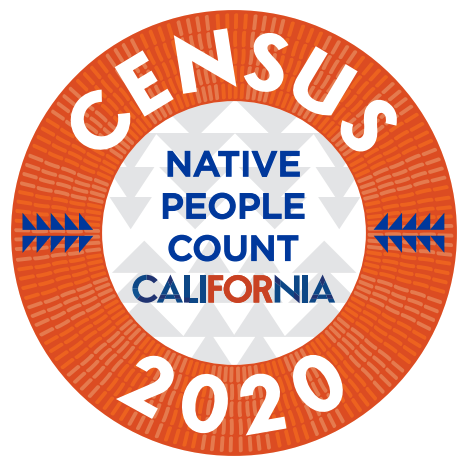By Kayla Hilario, Tribal Affairs Specialist, California Complete Count – Census 2020 Office census.ca.gov/tribal
For thousands of years, the Miwok people lived throughout Northern and Central California – spread over a hundred villages along the San Joaquin and Sacramento Rivers and north of the San Francisco Bay area, east into the foothills of the Sierra Nevada.
Then came sudden and drastic change – when an influx of European settlers in the 19th century invaded Miwok lands based on promises of riches overnight. In 1839, John Sutter built his fort and raided around the area. Then the California Gold Rush brought an onslaught of non-Native people into the area.
As many say, the rest is history – and has followed with many years of regaining the right to these historical lands and official recognition of the abuses faced.
This history is not new to Indian Country – we all have come to know this through the years and as other tribes have encountered the same struggles.
The Miwok story is personal for me – I am a descendent of the Blue Family. My late grandmother, Dorothy (Blue) Olvera, and late father, Henry Sonny Olvera, were very proud members of this Tribe.
I now take my family history with me to the work I do on behalf of the state. As the Tribal Affairs Specialist for the California Complete Count – Census 2020 Office, I work with Tribal Governments and tribal outreach to encourage the hardest-to-count Californians to take the Census.
It’s hard for me to admit, but prior to this role, I had little knowledge about how important the Census is for Indian Country. I think back to the 2000 Census when someone knocked on my front door to count me. I didn’t understand why this person wanted to know my name and who lived with me – I was suspicious.
This is a similar situation other Californians face today – understanding why the Census is important and how exactly it’s important for them and their family.
The Census counts every person in the United States regardless of background or immigration status. This simple, nine question survey helps determine dollars that fund important programs and our political power for the next 10 years.
In exchange for stolen land, the government made promises of health, housing, education and more to our people. The Census is the pathway for telling the government who is here, so they know how to allocate these promised dollars, resources and congressional representation to our people. Some programs that rely on Census data for funding are childcare subsidy programs, workforce development/employment programs, Special Supplemental Nutrition Program for Women, Infants and Children (WIC) programs, food stamps, Indian health services, housing, not to mention public schools, hospitals, and roads. By taking the Census, you ensure valuable dollars are brought to our communities for services we depend on every day.
Whether a household is counted as an American Indian/Alaska Native (AI/AN) household depends entirely on the race of “Person 1,” the first person listed on the Census form. If filling out the form online, make sure that when you select Head of Household as a American Indian/Alaska Native household that it does not switch the head of household when you respond to the question “Who is responsible for paying the rent/mortgage?” It is equally important for all other persons in the household who identify as AI/AN to be counted as such on the form.
Remember, the Census is self-response which means no proof of tribal enrollment is required. Select your racial identity as you see yourself. You have the option to select multiple races. To honor your heritage, consider adding your specific tribal affiliation, for example: Ione Band of Miwoks.
Please know, your information is safe and secure. The information you provide cannot be used against you in any fashion. We encourage community members who live off tribal lands to complete the questionnaire form online (my2020census.gov), by calling 844-330-2020, or mail.
If you choose to complete the questionnaire online (my2020census.gov) or by phone, you can input or provide your ID when prompted. Enumerators have already begun knocking on doors to collect information for those who have not yet responded.
It’s important for all our communities to be counted – especially Indian Country – to ensure we bring back resources and representation that is rightfully ours. Let’s not forget about our past as we help shape our future.
Kayla Hilario is a Tribal Affairs Specialist for the California Complete Count – Census 2020 Office. She is a citizen of the Ione Band of Miwok Indians.
